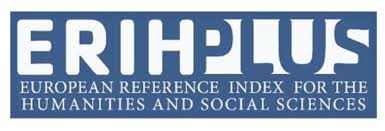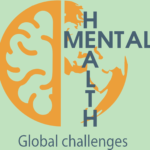The Mental health between epigenetics and individual beliefs
DOI:
https://doi.org/10.32437/mhgcj.v1i1.10Keywords:
mental health, cell behavior, epigenetic approach, beliefsAbstract
Mental health is an integrative concept that is not limited to dysfunctions or accentuations of psychic processes or mechanisms of thought. The research effort focused on the idea that mental health is a functional optimum found at the intersection of cellular behavior, the physical environment, the external environment, with all its subtypes, the environment in which the individual manifests itself and the subjective, psychological environment, dominated mainly by unconscious behavioral routines, beliefs, values, and ultimately individual perspective on life. Mental health represents and manifests itself as an emerging process resulting from the correlated functioning of the biological, physiological, and in particular cellular mechanisms, the various, random and / or permanent influences and stimuli of the physical, social and professional environment and the superior motivational structures of the type of beliefs and individual perspective on life. Epigenetics is a contemporary discipline derived from genetics that includes the environmental context as an important part of heredity. Currently, this discipline strongly influences a variety of areas, including medicine, psychiatry and psychology.
References
McMahon B. (2013), Body and Soul, in The Times, 9 March, p.4
Blaxter M. (2003), Two worms are better than one, in Nature 426, p. 395-396.
Bruce H. L., Biologia credinței, Ed. For You, București 2017
Denis A., (2013), Genes, Determinism and God, Cambridge Press, Volume 22, No 4, 2013,
Dennis C. (2003), Altered States in Nature, 421, p. 686-688,
Chakravarti A., and Little P,. (2003), Nature, nurture and human disease, in Nature, 421, p.412-414,
Cloud J., (2010), Why Your DNA Isn’t Your Destiny, in Time.
Galton F., (1874), English Men of Science: Their Nature and Nurture, Macmill & Co, London.
Goodman, L. (2003), Making a Genesweep: It's Official! in Bio-IT World.
Nijhout H.F., (1990), Metaphore and the Role of Genes and Development, in Bioessays, 129(9), p.441-446
Hollar, D. (2016). Epigenetics, The Environment, and Childrens Health Across Lifespans, Berlin:Springer.
Buchen L., (2012) Nature, 490, pp.466–468
Mulder, R. H., Rijlaarsdam, J., and Van IJzendoorn, M. H. (2017), DNA Methylation: a mediator between parenting stress and adverse child development? in Parental Stress and Early Child Development Adaptive and Maladaptive Outcomes, eds K. Deater-Deckard and R. Panneton (Berlin: Springer International Publishing), p. 157–180.
Pennisi, E., (2004), Researchers Trade insights About Gene Swapping, Science 305, p. 334-335. Pearson, H., Geneticists play the numbers game in vain, in Nature 423, p. 576,
Plomin R., et al, (2013) Behavioural Genetics, Worth Publishers, 6th edn, p 21
Reik. W and Walter J., (2001), Genomic imprinting: Parental Influence on the Genome, in Nature Reviews Genetics, 2, p. 21-23
Surani M.A., Reprogramming of genome function trough epigenetic inheritance, in Nature, 414, p. 122-124
Watters E., (2006), DNA Is Not Destiny, in Discover
Online resources 1. http://www.desprecopii.com/info-id-21575-nm-Epigenetica-stiinta-modificarilor-genelor.htm 2. http://www.newscientist.com/article/mg21028126.300-teen-survey-reveals-gene-forhappiness.html 3. http://en.wikipedia.org/wiki/Nature_versus_nurture.









 E-mail us: viktor.vus@mhgcj.org
E-mail us: viktor.vus@mhgcj.org 